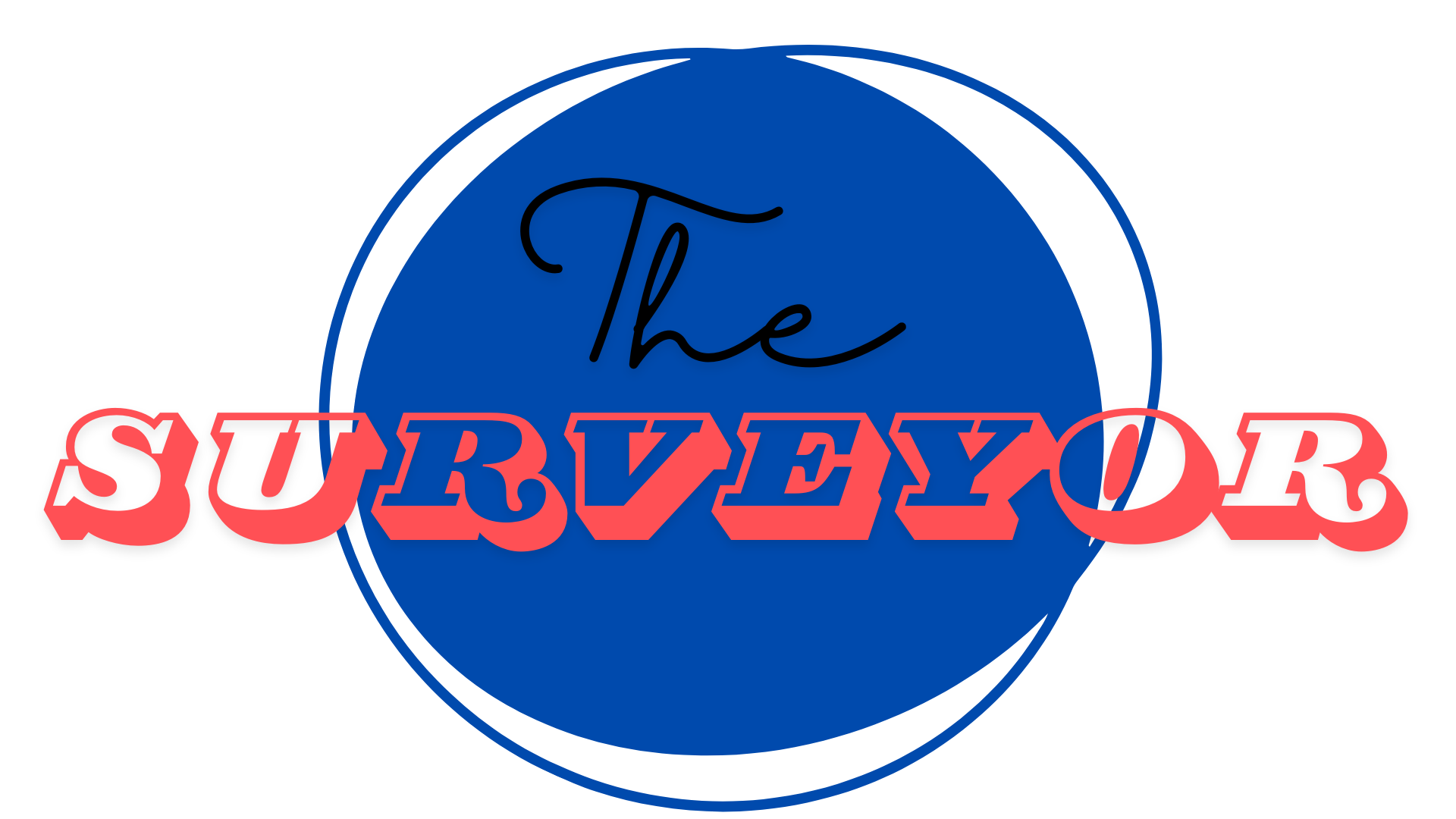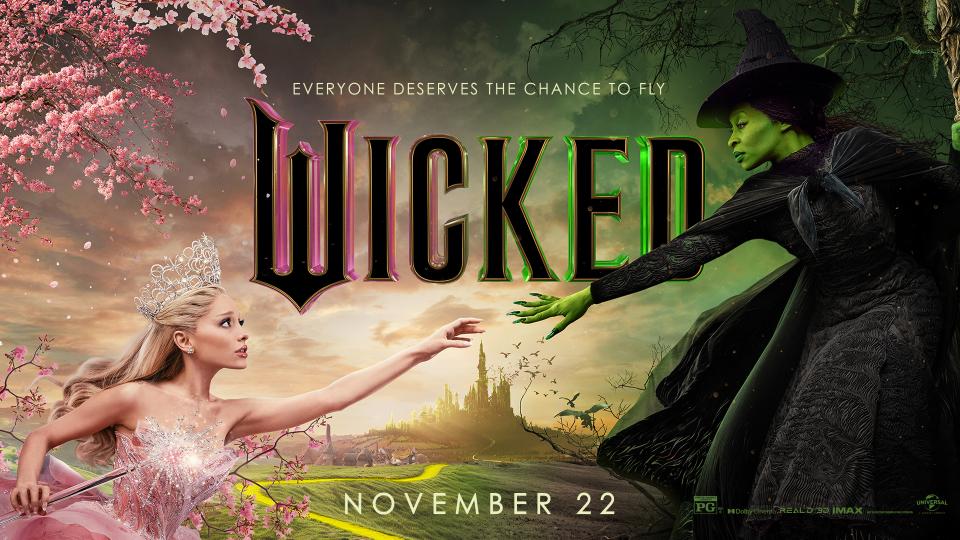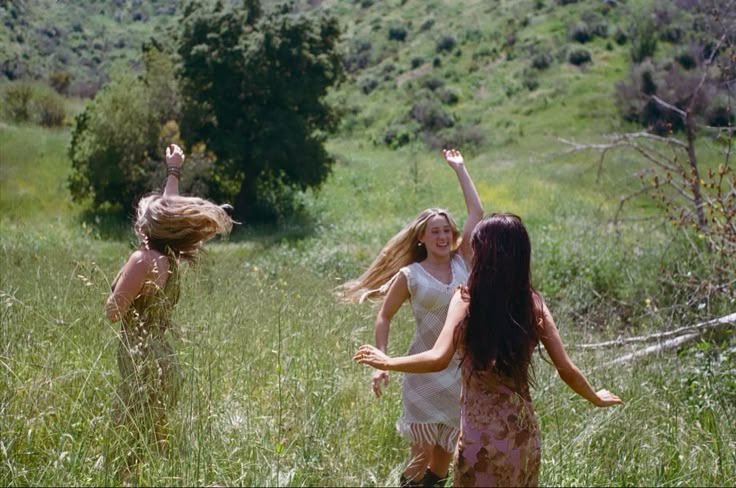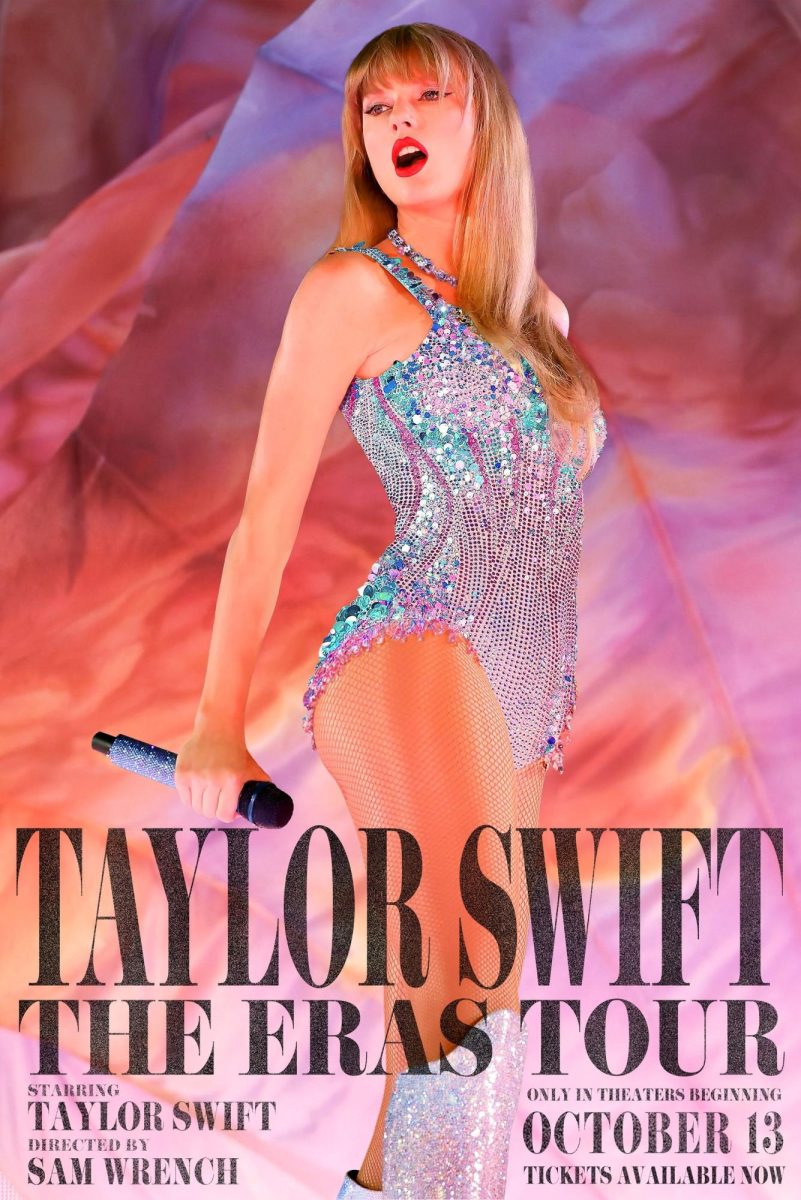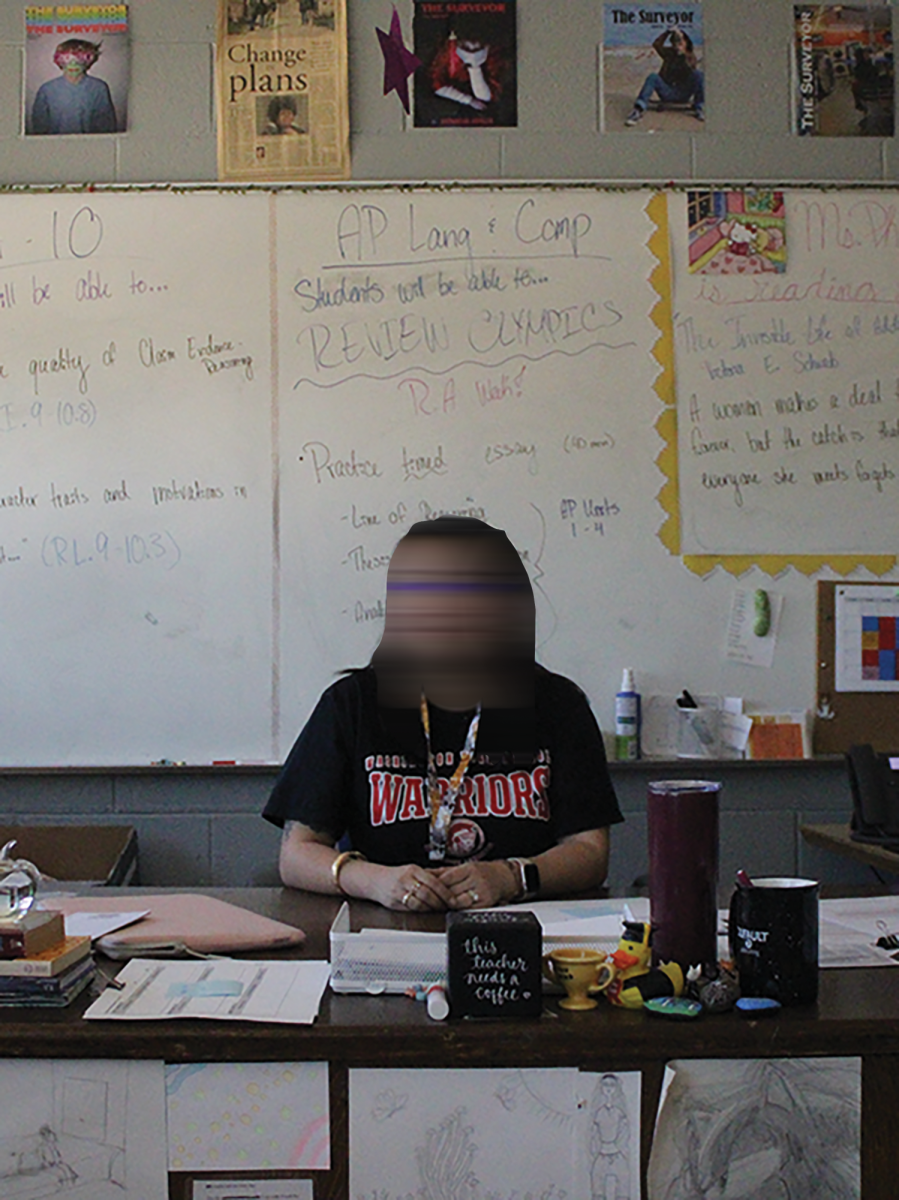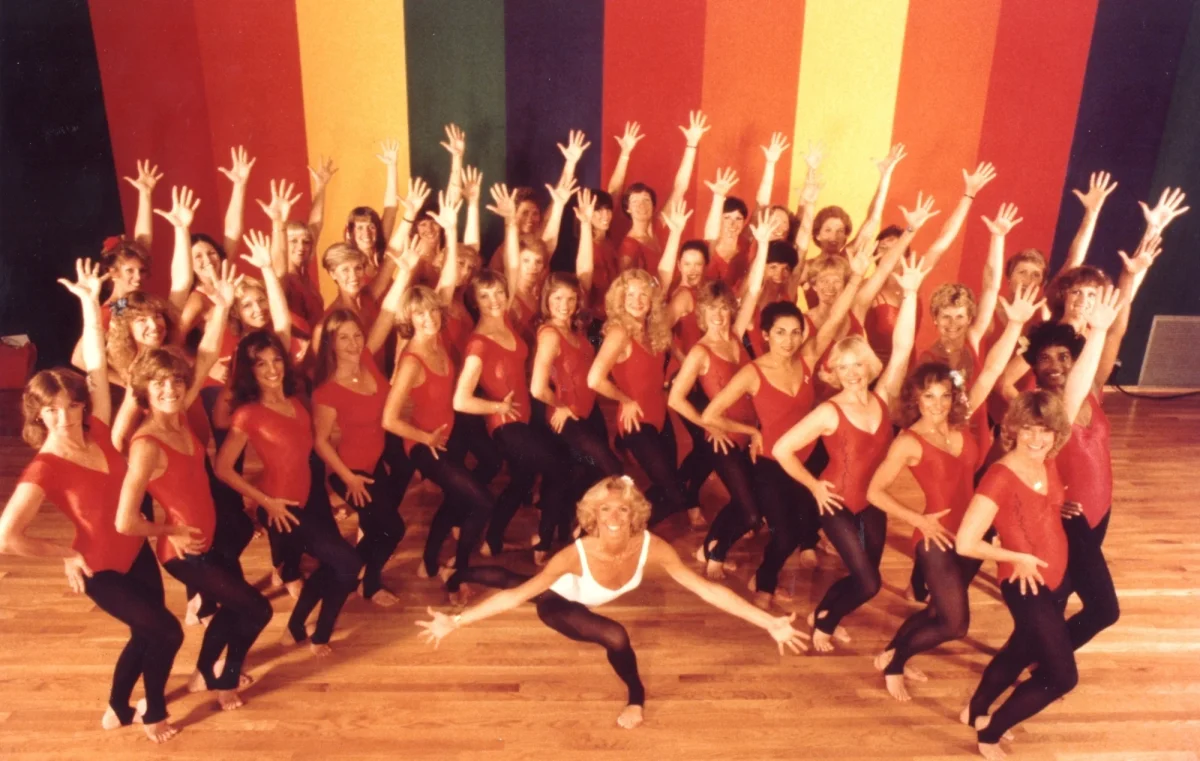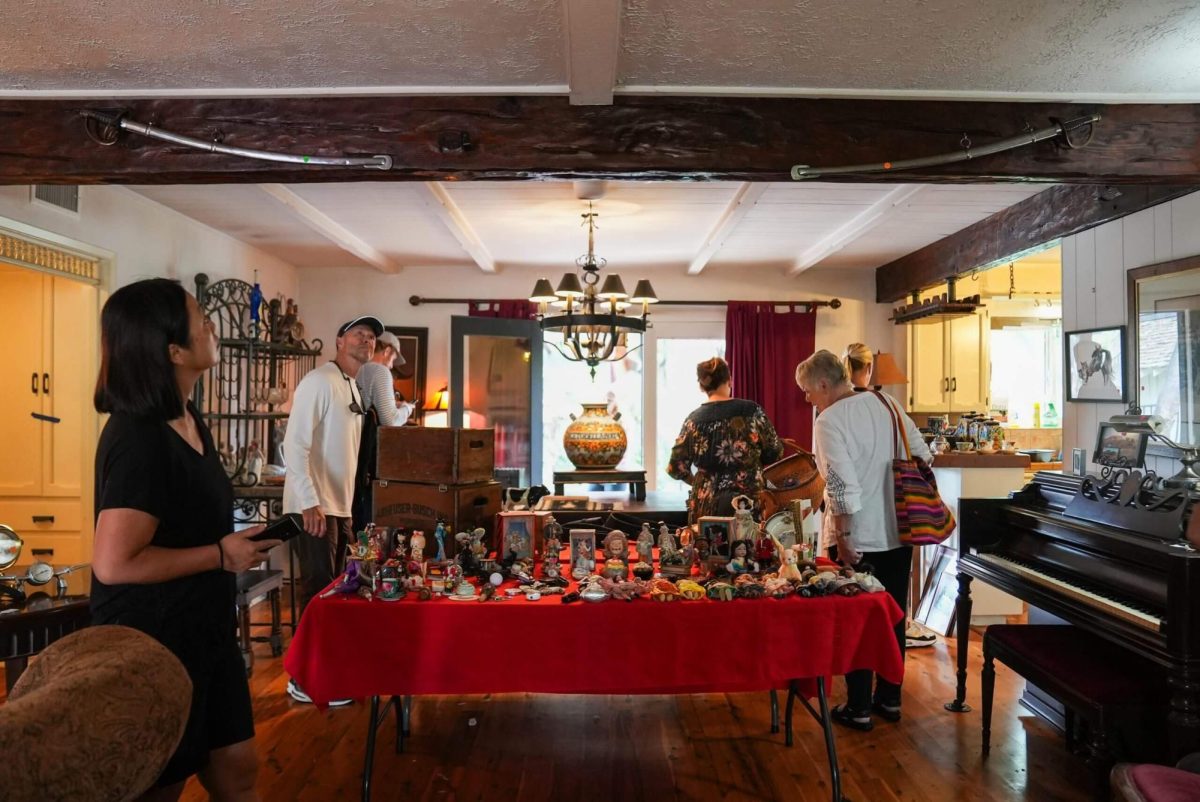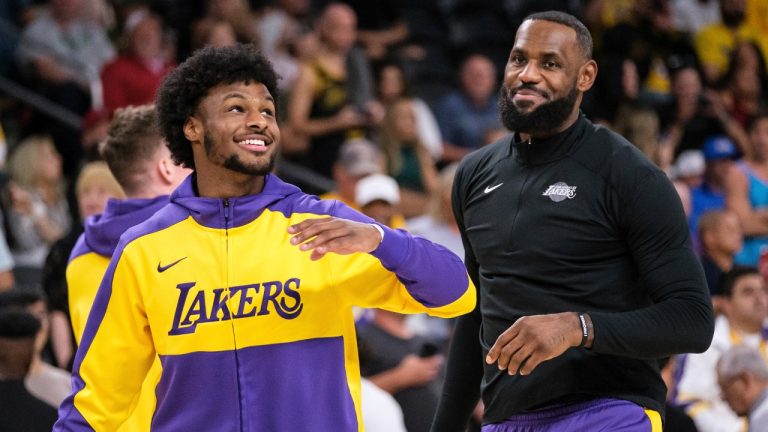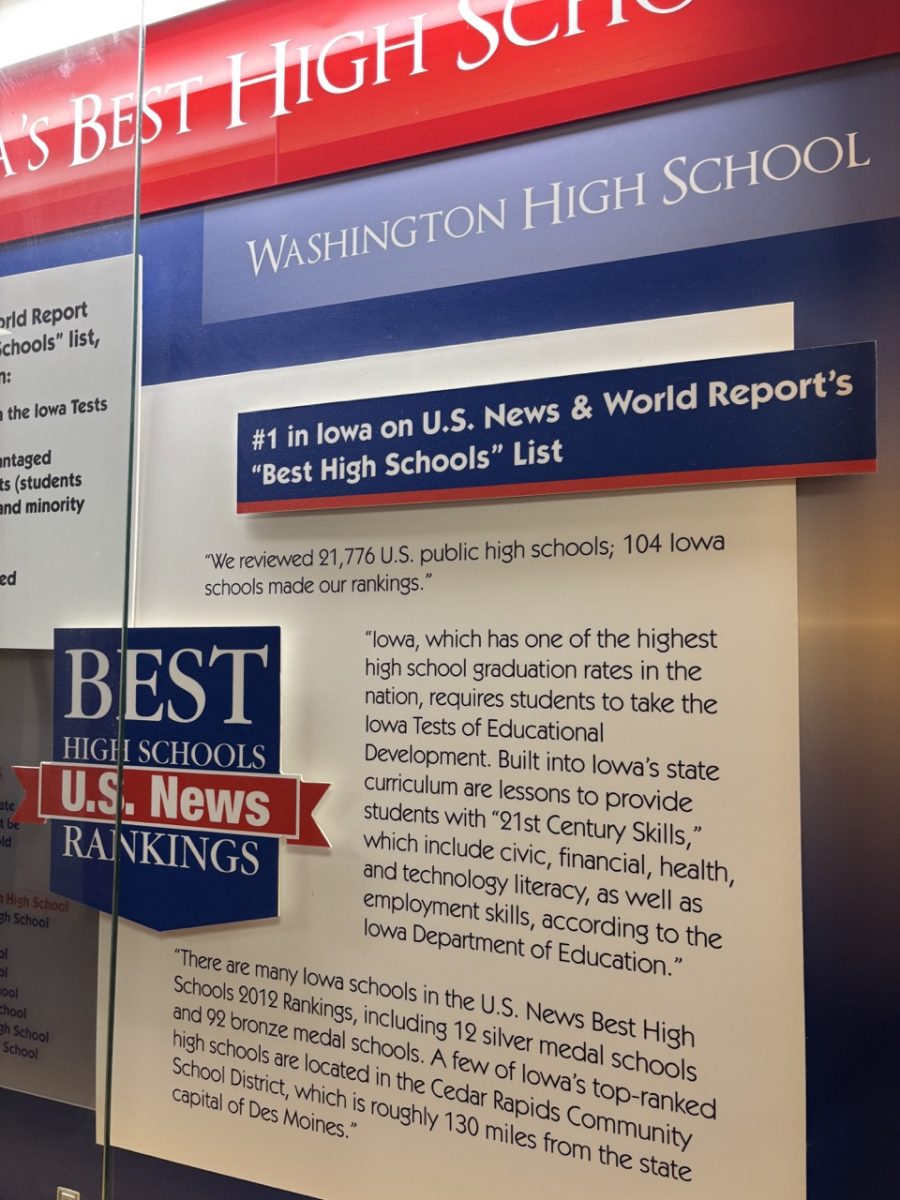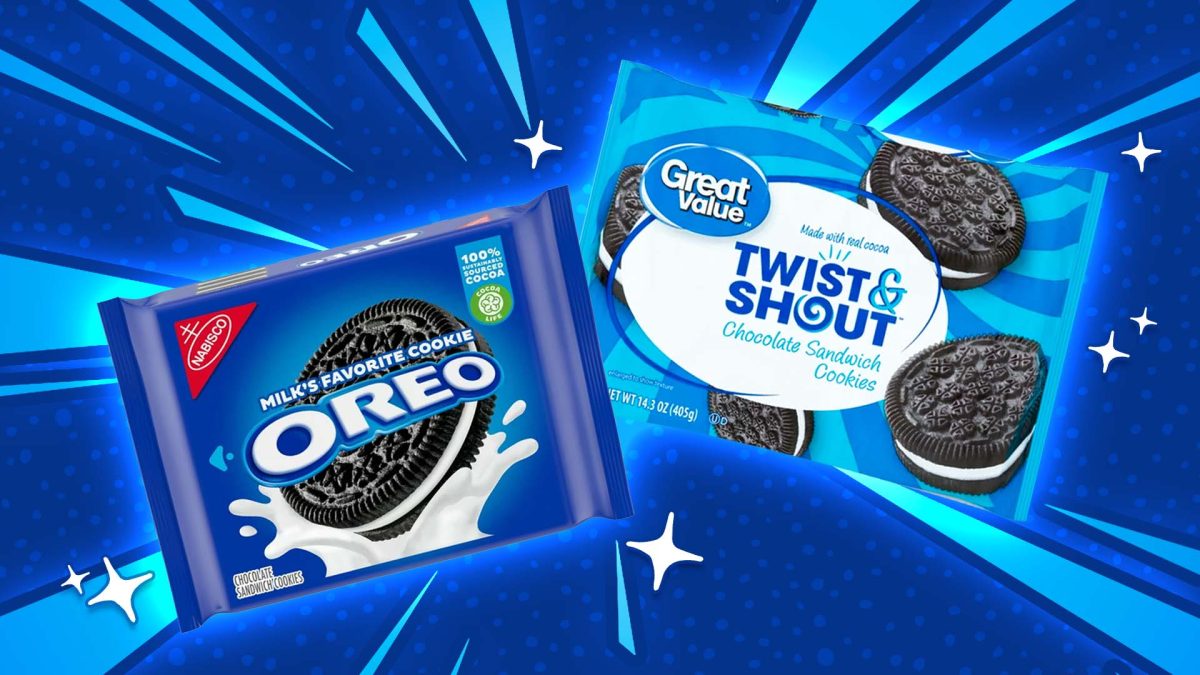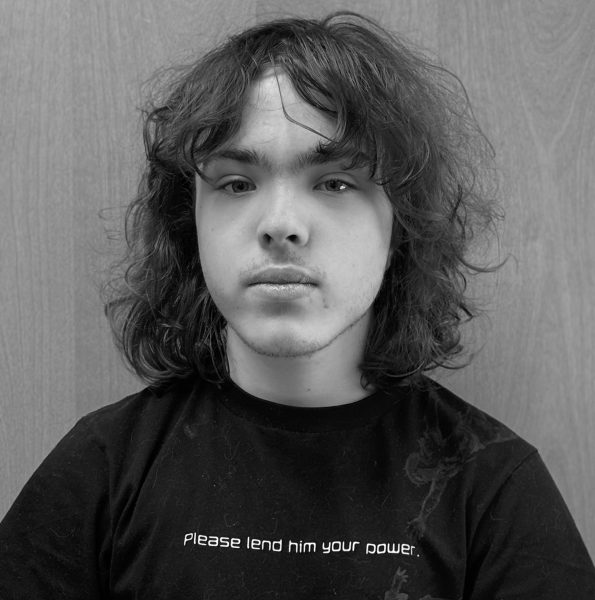It’s a common—so much so that it’s become generic—thing to say that theater kids are weird. But what happens when that “weirdness” grows far beyond that; when it becomes so huge and commercialised that it becomes not weird? This is what Wicked is, and it’s been wildly interesting to see the new kinds of reactions it’s created.
“Wicked” (2024) was a good movie. This is a rather unusual thing to say. It’s also unusual to say it was a bad movie, or even mediocre. “Wicked” feels like the kind of movie that everyone either loves unconditionally or sort of hates but doesn’t want to admit it because they feel that would go against their moral values. It’s created almost a corporatized obligation to like it within the general audience likely to see it: Support the people you agree with. Support the weird, and the underdogs. Because this is what it presents itself as, and it feels wrong to dislike it because all of the audience is either theater people or people who generally support the idea of them as people. At the same time, there’s mass-scale pressure – “Everyone around the world likes it, so I should too.” These two things seem contradictory; underdog and support bias but also the pressure of blockbuster, raving appeal. But the way it presented itself, and the initial audience of raving theater kids who’d seen the Broadway version spreading to the masses with good press, word-of-mouth, and reviews, allowed it to happen. It seems that this not-quite-theater-kid audience generally feels the most obligated.
Not necessarily obligated to like fully, or give it a rave review, but it creates a reaction – One hesitant to dislike it based on how it presents itself, or at least likely affected by the environment around it: “I do find myself questioning the value of the same vituperativeness that used to come so easy. How bad can a film about goodness really be in the spray-tanned face of American fascism, and what purpose would it serve for someone like me to shit all over it when everything else in the world is so much worse?” Says IndieWire’s chief critic David Ehrlich, who would have otherwise vehemently hated the film. Its position of “goodness” – or weirdness, or marginalizedness – Makes people not want to dislike it even when feeling the very commercialization that makes it unweird. He said that he refrained from reviewing the movie entirely for this reason. It seems, then, that the movie creates a conflict in the minds of many people, based on the dichotomy of the ways in which it’s presented.
I do believe Wicked does make a genuine attempt to be “weird.” But if it’s trying so hard to be weird, why does the movie feel so strangely normal and widespread? The entire movie feels almost like a “blockbusterized” version of the musical. Many of the song adaptations come off as more of a pop production style than a musical one. Not to mention the presence as one of the main focuses of Ariana Grande as G(a)linda, an artist with over 84,000,000 monthly listeners (the 11th most in the world, according to ChartMasters). It’s true that her character in the movie is meant as the antithesis of weirdness, but her presence nonetheless doesn’t help the movie’s intended feeling of quirkiness or being against any sort of flow. We never get the feeling that Elphaba is really superbly “weird” because she just seems so entirely normal and reasonable – She’s meant to be the relatably weird character, but a lot of it comes out as a pretty normal person (doesn’t hate animals, is generally not a rude, mean, snobby aristocrat) attempted to be juxtaposed with an extraordinarily extraordinary environment (a magical university, named Shiz of all things, occupying a world of flying monkeys, a city made entirely of emeralds that’s run by a hokey wizard, and – gasp – one person in a wheelchair, which is about as far as the movie dares to go into genuine themes about difference from the norm) that is meant to be “normal” and is presented in a very normally-dramatic way. The film’s wonderfully-large and melodramatic directing is great, but it isn’t weird. It’s Hollywood. Despite the entire movie’s powerful, grandiose directing style, it somehow often fails to truly hit you emotionally. It doesn’t feel like it has much gravity. Which is ironic, considering that’s the subject of its most ubiquitous song.And Jeff Goldblum once again plays himself, as is necessary in Hollywood franchise sequels. I love Jeff Goldblum dearly, but he is certainly not the Wizard of Oz, beyond his by-now normal sense and presence of kooky, strange whimsy. Speaking of the directing, and of trying to be weird, Jon M. Chu (the director) is also, in some superficial ways, an “underdog” as well – of sorts. He wrote and directed the first major Hollywood movie to feature a cast of majority Asian descent, and came from a first-generation immigrant family who left World War II China to start a tiny restaurant in America. But Mr. Chu isn’t really an underdog; his family’s restaurant became world-famous to President family and Prime Ministers, and they always fully supported his passion and desire to do film. He’s been offered many high-profile Hollywood projects from The Great Gatsby . This positions him as someone who is adjacent to, and obviously in great support of, a minority or marginalised group but in current context and circumstance is not really marginalised himself. Even taken out of the context of the real world and back into the context of a nerdy green lady trying to save the talking animals from a prevaricatingly-authoritarian manifestation of Jeff Goldblum who claims he’s a wizard and his actual-wizard sidekick, this helps explain much of the feeling of the film and feels like the precise balance the movie is trying to strike throughout; the entire movie feels like it’s trying to appeal to a feeling of marginalization or a group of people who feel that way, while also keeping it “Hollywoodish” enough to appeal to a massive audience. For a movie about feeling weird and marginalized, there’s very little actual personal feeling of weirdness. It feels like, somehow, an only slightly failed attempt at being genuine from, somehow, quite genuine-seeming people. All of this is context for the larger way in which it presents itself to its audience – An audience of two for a movie that is divided in a multitude of ways.
It’s well documented that the musical theater fanbase generally supports marginalized communities. When evidence came out that Nicole Sherzinger, the previously-acclaimed star of a new Broadway musical, had passingly supported a conservative view that could hurt some of her fellow performers, almost the entire fanbase rioted against her – A rarity in the hyper-divided world we live in currently. And “Wicked” vaguely presents itself in this way – It gives something for people to support. There is a wonderfully-wholesome series of Letterboxd reviews about how gay Fiyero is. (His actor, Jonathan Bailey, is openly gay and has fought avidly for LGBTQ+ representation and full acceptance in film and acting especially, and started a charity to help with this in 2024.) The movie features a wonderfully-diverse cast from a variety of different backgrounds, including the aforementioned singular person in a wheelchair (who, if we stop the jest, was really one of the best and most genuine-feeling characters in the movie, helped by a wonderful performance by Marissa Bode). And, obviously, the theater kids; an equally-serious disenfranchised group. The movie’s general message of a universal kindness even to those who may seem “weird” or made out by the powerful as an “enemy” supports all this.
But the entire movie feels almost like a glossified version of that feeling and those communities – No actual mention, no unique feeling, just Hollywood. Of course, there is an argument that this is a good thing – Movies like George Lucas’ and Anthony Hemingway’s “Red Tails”’ main acclaim and point was giving a group the “glossy” or “blockbusterized” treatment in order to create a true equality – Almost a “this group can be the ridiculous, overblown, generic blockbuster, be normal for it, and have the same effect.” But there’s a strange, almost liminal feeling that purveys throughout the movie that I feel like goes against that; I couldn’t put my finger on it while watching the movie, but I felt it, and writing this I think it’s finally clicked as the reason why it wasn’t able to have quite the emotional impact it should have: Mass-scale adaptational and emotional commercialism. This may sound like immense hyperbole, and it certainly is, the movie is good and teeters on great, but I do genuinely believe that to some extent it’s true: There is certainly a difficult-to-explain feeling to the movie, and it is explained in some part by some strange form of unintentional Hollywood conventionality. Different than that reasonable type of blockbusterization, because it’s not intentional. The filmmakers all come off as incredibly genuine. Somehow, the final movie doesn’t quite.
And back to the movie’s strange audience dichotomy, the movie again feels almost like it’s trying to hide all this and swipe it under the rug behind a Hollywood finish to reach a “wider audience” – Only the movie’s core group of fans (all of these comments were from five-star reviews, which makes it likely they were the initial rabid group of theater people) seem to really notice, reach, and connect with this, and everyone else just gets a blockbusterized, almost watered-down version of what it could be and seems like it wants to be. It’s constantly trying not to let go in order to reach a wider audience, but that often actually makes it less enjoyable for them because it feels like it’s holding something back. The movie’s humongous outside success comes from a want to support weirdness – of theater kids or other, more legitimately marginalized groups – but it’s a sanitised version of weirdness. It’s not actual support, and it creates a misunderstanding from all but the core audience who loves it nonetheless. The movie seems slightly confused about who it’s aiming for, the wider people or a smaller group who feels different from their peers, and it constantly tries to compromise on this. And it comes out as quite a good compromise, but it just seems like it’s confused many of our brains, too: “Who are we supporting, the ‘weird’ or the commercial Hollywood?” and whether we should like the movie at all. “Wicked” was a good movie. But it’s been interesting to see how the unique feeling it creates from the difference between its message and its execution have shaped our – especially supporting groups outside those marginalised that it focuses on, theater kid or otherwise – perception of it, and how its blockbusting, commercial, but deep-down genuine idea of uniquity and being left out due to differences in a structured society affected different people differently.
It is evident that this feeling of being weird and ostracized connected with a humongous audience: The movie made $717.4 million in the theater box office, quickly became the highest-grossing musical-to-film adaptation ever made (above films like the ever-incessant Grease), made the second-highest Thanksgiving gross of any movie ever, made more money than the original Wizard of Oz, the second Dune movie, and one-time biggest movie E.T. from the same studio, had the highest at-home opening week of any Universal movie ever (even surpassing the critical masterpiece The Super Mario Bros. Movie), and audience reviews that generally surpass even the very respectable acclaim of the critics. But if everyone relates to being weird, is it really weird anymore?
